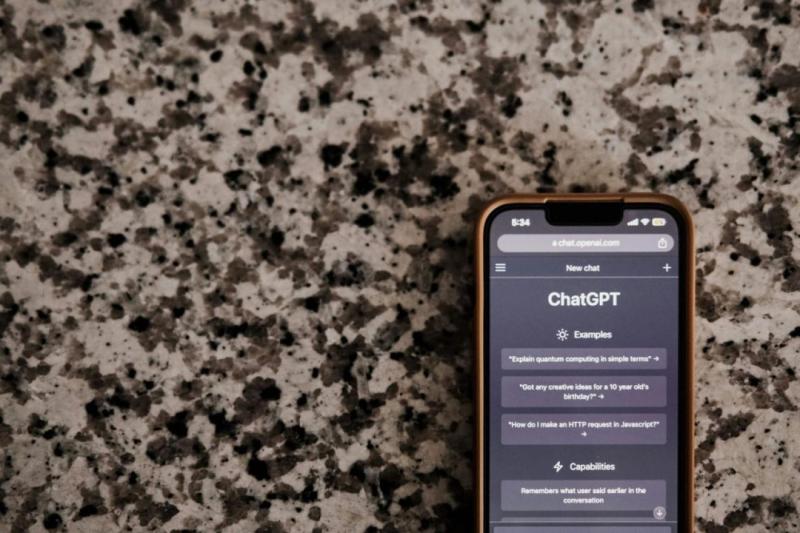Image: https://www.abnewswire.com/upload/2025/05/bf38eb6b9934ef3c03b7afab103199ea.jpg
ChatGPT and similar AI tools have made an enormous splash in the technology world. The question on many minds is whether these chatbots are genuinely challenging Google’s dominance in the search market. Let’s look at what’s happening beneath the headlines.
Is ChatGPT actually stealing users from Google?
Yes, to an extent, there are clear signs that ChatGPT is drawing users away from traditional search engines. According to research, Google search traffic decreased by approximately 8% [https://www.bloomberg.com/news/articles/2025-04-07/google-ai-search-shift-leaves-website-makers-feeling-betrayed]year-over-year in certain markets where AI chatbot usage has increased dramatically. This shift represents the first meaningful challenge to Google’s search dominance in years.
The appeal is straightforward: ChatGPT provides direct answers rather than a list of links requiring further clicking. Users increasingly appreciate this time-saving approach, particularly for straightforward questions where sifting through search results feels unnecessarily cumbersome.
Richard Tank, founder of Hubspot agency, Hey Rebels [https://www.heyrebels.com/], explains: “More and more people are using Chat GPT for information and to find succinct answers straight away, rather than having to navigate through multiple websites on Google to figure out the answer.”
“In business settings, you may find people using Chat GPT more and more, but overall the impact to Google’s search dominance is less than 1%. For everyday items, like buying products, holidays and finding local services, Google still reigns supreme, especially for things like images and maps, where Chat GPT is still catching up.”
“In fact, Chat GPT holds only 2.1% of total search traffic in the US, other search engines such as Bing (3.89%) and Yandex (2.53%) have more and Google still dominates at circa 93%. (Source: GS Statcounter)
Why are users turning to AI chatbots instead of Google?
People are gravitating toward ChatGPT because it offers a different way to access information. Rather than presenting multiple options like Google, ChatGPT synthesizes information into concise, conversational responses.
The experience feels more like asking a knowledgeable friend than interrogating a search engine. For users seeking quick answers rather than comprehensive research, this format proves incredibly appealing. The conversational nature also allows for follow-up questions without starting a new search, creating a more natural information-gathering flow.
What advantages does Google still maintain?
Google maintains significant advantages that ChatGPT hasn’t matched. Most importantly, Google’s search results remain more current, with ChatGPT’s knowledge cutoff limiting its usefulness for recent information. Google processes approximately 5.9 billion searches daily, providing it with unparalleled real-time data about user interests and emerging trends.
Google also maintains superior accuracy for many queries, particularly those requiring factual precision. While ChatGPT occasionally produces convincing but incorrect information (so-called “hallucinations”), Google’s search algorithms have decades of refinement behind them.
How is Google responding to the threat?
“Google hasn’t been standing still,” confirms Jade Bartholomew, founder of SEO agency, Sierra Six Media [https://www.sierrasixmedia.co.uk/]. “The company has accelerated its AI integration, launching Bard (now Gemini) as a direct competitor to ChatGPT while also incorporating AI summaries into traditional search results.”
“However, Gemini only appears for some searches and not quite everything yet, whereas Chat GPT can pretty much give you an answer on anything. There is also no firm evidence as to whether users are using Gemini actively or just brushing over it.”
“Google’s strategy appears to involve preserving its advertising-based search business model, which we know as Google Adwords, while gradually introducing AI features that address user demand for more direct answers. Their approach aims to maintain their core revenue stream while adapting to changing user expectations.”
Will this fundamentally change how we search for information?
The emergence of AI chatbots is indeed reshaping our information-seeking behaviours. We’re witnessing the early stages of a significant shift in how people interact with information online.
The future likely involves a hybrid approach, with traditional search engines incorporating more AI-driven features while chatbots improve their factual accuracy and transparency. For users, this competition means more choices and improved tools for finding information efficiently.
What’s clear is that ChatGPT has successfully challenged Google’s perception as the only serious gateway to online information, even if it hasn’t yet made a devastating impact on Google’s market position. The search landscape is evolving, and users stand to benefit from this renewed innovation.
Media Contact
Company Name: Hey Rebels
Contact Person: Richard Tank
Email:Send Email [https://www.abnewswire.com/email_contact_us.php?pr=heyrebels-analysis-users-shift-from-google-to-chatgpt-for-information-discovery]
Phone: +44 207 123 8408
Address:167-169 Great Portland Street
City: London
Country: United Kingdom
Website: https://www.heyrebels.com/
Legal Disclaimer: Information contained on this page is provided by an independent third-party content provider. ABNewswire makes no warranties or responsibility or liability for the accuracy, content, images, videos, licenses, completeness, legality, or reliability of the information contained in this article. If you are affiliated with this article or have any complaints or copyright issues related to this article and would like it to be removed, please contact retract@swscontact.com
This release was published on openPR.


